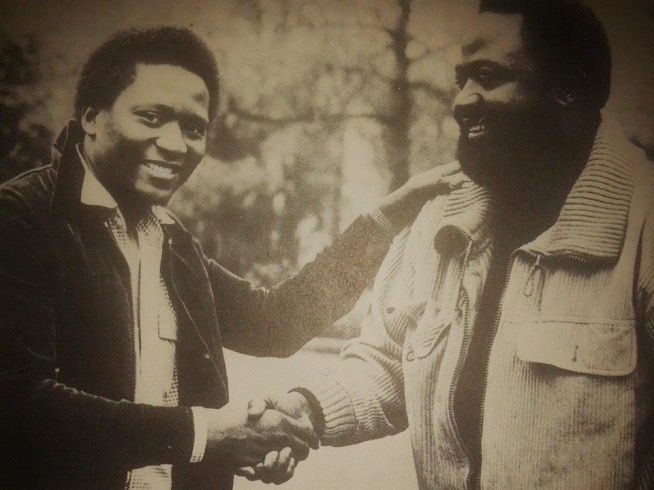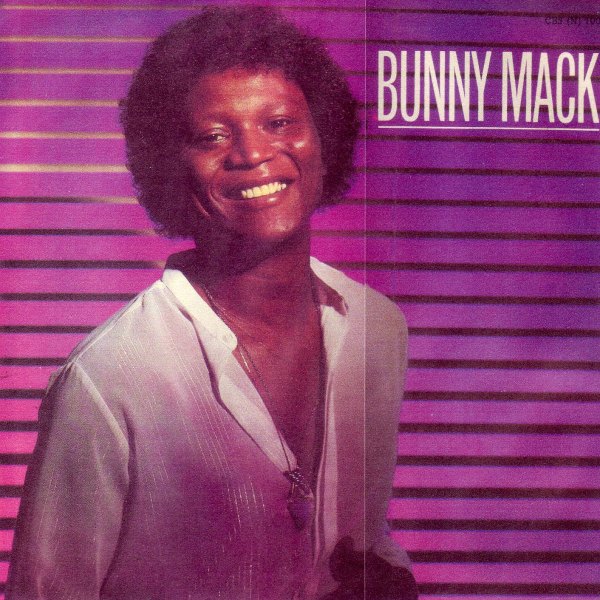Mr. Lasite, 30 years at the helm of THE school in Sierra Leone
By Vickie Remoe - November 21, 2015 2 697 {Courtesy: SwitSalone}
Principal Akinwande Josia Lasite
For the last 45 years Mr. Akinwande Lasite has served at Sierra Leone’s oldest learning institution, the Grammar School, where he has been principal for the last 3 decades. The Sierra Leone Grammar School was the first secondary educational institution for West Africans with a European curriculum when it was opened in 1845. In this candid and rare interview with Switsalone’s Augustine Kargbo, Mr Lasite talks about his leadership skills, the one, yes one student he admires the most in recent times, and tips for academic success at any institution. How does this fourth generation Regentionian thinks he will be most remembered by his students? What does he find most difficult about his job? Which one of the accomplishments under his tenure is he most proud? All this and more below.
The Interview:
*Interview Recorded & Transcribed – Pls indicate any typos*.
:::::::::::::::@@@@@@@@@@:::::::::::::::
Switsalone
Full name, Age, period of time working as principal?
Mr. Lasite
I am Mr. Akinwande Lasite principal Sierra Leone Grammar School; I have served in this school since 1970 and became principal of this school in 1985 and I am 68 years old.
Switsalone
Tell us why you are interested in this school?
Mr. Lasite
There are couple of reasons why I am very much interested in my alma mater Sierra Leone Grammar School, I have family connections. My grandfather attended this school and taught in this school, my father attended this school. I have uncles who attended this school, all my brothers attended this school, so there is that family link with the school. Apart from that I’m an Anglican and the school is the property of the Bishop of the Anglican Church.
Switsalone
Tell us what it takes to be the principal of a school of excellence over the past years? What are the strategies implemented.
Mr. Lasite
Well it is not easy. There are challenges here and there, but there are also opportunities. What we have done over the years is to collaborate with different groups of people. Our prime partners are the Old Boys locally and oversees. We involve them as much as we can in school development planning and implementation. We also have our teachers. Although they may change from time to time we try to establish a strong cohesive work force, collaborating both in attitude and outlook. Then we have our parents. Again the complexion changes, but I must say we have maintained very good relations with our parents over the years. They have confidence in the school and they think they can send their children to this school for what we consider to be quality education. We should not forget the pupils because they are vital in the success of the school. They are the raw materials in fact with which we work so that we have a well finished product that will serve the country and humanity as a whole.
Switsalone
What accomplishment are you most proud of?
Mr. Lasite
Well, that is a difficult question. When one has served as a principal for 30 years there must I may presume be a number of accomplishments that one may look into. I am thankful to God. I may say our main accomplishment is the recovery of our school land. There was a time in the early 80s when people were building on the school land. Now I have almost acquired every inch of our schoolyard apart from the areas we have by the buildings and the school field. The Judicial System as a whole, the Police Force, were all involved. In the end the involvement of the Sierra Leone Police in reclaiming the land and evicting the encroachers was very important. I consider that as important because it restored the heritage of our school.
Switsalone
What is the hardest decision you have had to make in your career?
Mr. Lasite
I think that would involve a pupil, when one may at times take a difficult decision telling a pupil he is no longer required in the school. We think our pupils love the school and so when a pupil has contravened school regulations to the extent that one makes that kind of decision and the pupil has to be informed about it, apart from the fact that a letter may be written but verbal information has to be given. That can be a very difficult thing but as a Head over the years one has picked up some cancelling skills one may use to transmit that sort of difficult decision.
Switsalone
What are the three critical things you would do in a school to accelerate school growth and ensure that every child is learning?
Mr. Lasite
Well, this must be the employment of qualified teachers because they are the ones who will transmit knowledge to the pupils in the classroom setting. As a principal one should always know what is happening in the classroom so there is need for monitoring and that will tell whether the teachers are going regularly to their classes and also delivering quality lessons. The third would be to encourage the pupils themselves to treat their work seriously and that is what we do on a regular basis. When a pupil is about to join this school we normally have a meeting with the parents and the pupil. One of the first things we say is nothing comes easy at the Sierra Leone Grammar School you have to work hard. If you were influenced in coming to the Sierra Leone Grammar School because you know of Regentonians who seem to have succeeded in life and said as I go my future is certain you would be mistaken. You have to work hard and that is what we regularly impress on our pupils, that they should be active participants in the teaching and learning process.
Switsalone
Tell us about one student in your career that stands out in your mind. Why does this student stand out?
Mr. Lasite
Well, again for 30 years one has been dealing with thousands of pupils. I cannot say all of them have exceled but one has to think, but a fair number, and I’m sure if others have to see this interview, they would say Mr. Lasite didn’t select me but you have narrowed it down to just one individual. It is difficult really to make such a decision but one person I can think of is someone who left the school not so long ago, Abdul Njai who is now a medical student at the College of Medicine and Allied Health Sciences. This was an all-rounder in the sense that he performed in various subjects. He was very very good but he would also go out to link up with his colleagues for them to study together and I’m sure what he lacked he gained from some of them and what they lacked he passed on to them. That is what I admired in him, that he didn’t keep everything to himself literally he was willing to share. Of the numerous pupils who gone through my hands this is someone I can identify as a pupil whom I related well with and whose general attitude and outlook look impressed me.
Switsalone
Tell us about a time when you implemented a new strategy. What was the strategy? The actions you took and the results? Why did you think the strategy was the best solution? How did the strategy align to standards? How was it differentiated to meet the needs of all students, across grade levels? What happened with the strategy?
Mr. Lasite
The question you have asked goes right through my age. I can not think of the number of things but probably one could focus on the change of status. Our school was founded in 1845 and it remained and independent, self-supporting school until the early 1940s when it became a Government assisted school. However, sometime in the early 1990s the desire developed among the school authority including myself that probably we should go on to another level. We thought that becoming a self-supported school was vital for the school’s survival and so the idea of the change of status of the school from a government assisted school to a private school began to develop. It took us quite some time before that was finally achieved in 2007. That could alone be possible because of the collaboration that one was able to achieve between the different stakeholders. Some of us were really afraid of the change; will we be able to make it? Will we be able to finance the school operations on our own? We convinced the doubters that we could do it, and they gave us that push that support to go ahead. I may say since 2007 we have been performing to their satisfaction and our performance in the area of academic work and other areas have shown the community at large that we are making strides at the Grammar School. No one can say that the strategy or that change has not been successful although more work still has to be done in that area. And then when we look at the new building one can see it as an outgrowth from that change of status because that gave us the zeal to put up a structure that will convey to the public that our school was moving forward.
Switsalone
Tell us about a time when you had to resolve a difficult situation with a student. Please tell us the situation, the actions you took and result?
Mr. Lasite
Our pupils are human beings and they are dealing with teachers who are also human beings, so at times there can be friction. So you will have a situation where a pupil comes and reports a teacher and one has to give a listening ear. A student came to the office in tears, it was something relating to his marks, he felt he had not been fairly treated in terms of his marks in which he could have had more. One has to look at the issue, look at the test, look at the answers marked by the teacher. I even invited the teacher in for discussions, but the teacher clearly pointed out how the marks were awarded and so on. So we pass the information to the pupil that even though at first glance it will seem as if he merited more than he finally received, that when goes to the bottom of it one will see that he had been fairly treated. One also tried to encourage the pupil to corporate with the teacher, and I must say it seems as if both of them were willing to work together because by the time the pupil left the school eventually I think he was on very good terms with the teacher.
Switsalone
Tell us how the Teachers in your school work together and collaborate?
Mr. Lasite
In the first place it is not easy because the complexion of the staff changes almost on an annual basis. Right now we have an advert out for new teachers, we will be recruiting in January 2016. What we try to impress on our teachers when they join the staff is that however qualified you may be or experienced you may be when you come into the Sierra Leone Grammar School, you have to relate with others particularly the subject heads and the heads of department because they give direction as to how topics are to be taught and how we relate with each other. So that is the first step. We have what we call an orientation program for our teachers when they are recruited to give them the idea that they should corporate with others and even in non-academic areas we try to encourage that kind of corporation in our houses, clubs and societies, in every activity we are engaged in. We emphasize the point that team work is what can guarantee us success in the end and when we are successful everyone becomes happy.
Switsalone
If you were given another job, will you leave your school for that job?
Mr. Lasite
Having spent forty-five (45) years in the school I am very much doubtful whether another job will be so attractive as to move me away from the Sierra Leone Grammar School. Particularly so in my late 60s I think my years of active involvement in employment may be coming to an end it will be really difficult I must say. There have been one or two offers but things in the Grammar School have kept me away in the sense that one always has another project, another lesson to accomplish and will try to move on to that. So I don’t see myself really moving into another job, probably after I retire I may look at opportunities that may come my way probably as a consultant or in an advisory capacity that kind of thing.
Switsalone
What would be your advice to fellow principals on how to run a school?
Mr. Lasite
Right. I think there is a lot one has to learn because as a principal you don’t know everything but you are expected to lead from the front. In the first place you should know the basic principles of education. You should know the situation of your school in terms of the environment, the community itself, the resources it has; humans as well as materials. You should have a vision for taking your school forward, you should be able to work with others in moving your school. At times some individuals say Sierra Leone Grammar School is a class A school and I tell them I have never seen such a list of class A schools, or class B schools, or class M schools in Sierra Leone. Even where you may be if you set your mind on a project focus on it, work with others to make some impact in the school in that area you will see things opening for you in the sense that you will gain confidence from that initial success and that will enable you to go further and higher in your vision and accomplishment for your school. You must be involved in the school. You cannot be a part time principal having so many other external activities. I am in this school every day as best as I can. I attend assembly every day and almost every day I speak to the pupils to the extent that if immediately after our devotion we announce the national anthem its a surprise to them because they will say Mr. Lasite has nothing to say today, because there is always something to say either locally or internationally. One listens to current affairs or one gets involved in current affairs and one hears about the latest developments which some of the pupils will not have heard, one can mention those things in order to encourage them that if they continue to work they can have success in the future.
Switsalone
If you were to be moved from Sierra Leone Grammar School to another School which School would you have in mind?
Mr. Lasite
Oh that one is very strange because I don’t see myself moving from the Sierra Leone Grammar School to another school that’s the first thing, but you have put me in a very difficult situation. I suppose one is looking locally and thinking which of the schools in Sierra Leone one wants to be associated with. I don’t know probably one of the schools with similar ideals like the ones we have here. So I will probably be looking for another school with a missionary link like Bishop Johnson because it also has the Anglican diocese of Freetown as its proprietor or probably the Annie Walsh, but probably more towards the Bishop Johnson since I started my secondary school career at the site now occupied by Bishop Johnson. I have been involved in a single sex school since my teaching life, Bishop Johnson is a co-head, Annie Walsh is a single sex female school. I may not probably be able to fit in as easily there as I might be with Bishop Johnson but I think those are the things that may determine that kind of decision if it has to be taken.
Switsalone
At the end of your career, what do you think your students would say about you as a leader?
Mr. Lasite
They are the ones who will decide but I think one of the things the pupils seem to admire from one generation to another is the fact that I can recognize them physically and by name, a good number of them. There was a time in this school I will proudly say I could identify 95% of all pupils; by name, class, probably even place of residence. I’m not quite sure I’m still capable of that, probably the percentage has dropped considerably but I think that is the thing they might recall about Mr. Lasite.
End of interview
Please feel free to leave your most memable Lasite moments and encounters below and feel free to recommend other Sierra Leonean persons of interest we should profile on our People section.










